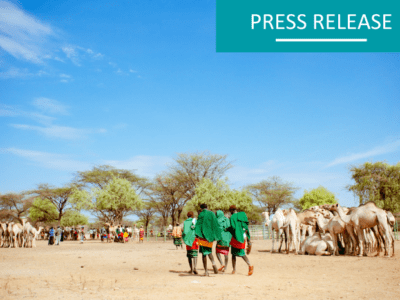
This spring, coffee farmers in the Philippines have had their products stored in warehouses all over the country. The farmers need the money, especially now, during this global pandemic.
Linking Farmers and Buyers
Following the postponement of the Philippine Coffee Quality Competition (PCQC2020), the ACDI/VOCA-implemented USDA Philippine Coffee Advancement and Farm Enterprise (PhilCAFE) project and the other competition organizers agreed to facilitate a Market Matching activity for farmers who entered their coffee in the competition.
In early April, a Market Matching platform was launched to initiate negotiations between coffee buyers and coffee producers. As of April 27, 18 coffee buyers from different parts of the Philippines and one buyer from the United States that has an office in the Philippines have declared their intention to buy PCQC2020 lots.
In response to COVID-19, the PhilCAFE program will be working to assist coffee growers to ensure the quality of their yield and help them find ready markets for the next harvest in the winter. The project is also exploring the possibility of potential buyers or credit institutions providing advance payments to provide the coffee growers with needed cash flow.
PhilCAFE is also disseminating Kadiwa services to farmers. Kadiwa, which stands for “Katuwang sa Diwa at Gawa para sa Masanang Ani at Mataas na Kita,” is a marketing strategy that the Department of Agriculture initiated that directly connects food producers to consumers. It links the local government units (LGU) in urban centers to farmer-producers in the different parts of the country to ease the delivery and distribution of food supply and it reduces costs.
Creating At-Home Demand
Many local participants’ enterprises–cafes, restaurants, souvenir shops—are closed during the quarantine. This is affecting local coffee sales, particularly for coffee growers that rely on coffee buyers, green bean hunters, and traders from outside the region. Likewise, imports of coffee have slowed and could lead to increased prices due to logistics concerns.
While, traditionally, Filipinos are instant coffee drinkers, there is an increasing number of Philippine consumers who are now into brewed coffee. Most of these consumers live in urban centers and get their brewed coffees from their local coffee shops, which are now closed.
To help bridge the gap between local consumers and their regular coffee fix, the PhilCAFE project is working with local volunteers and baristas to promote the “home brewing” of local coffee. The campaign, launched in mid-April, uses posters, video clips, Instagram and Facebook to help coffee lovers brew great coffee at home. The goal of the campaign is to create opportunities not only for farmers, coffee shops, and roasteries, but also for suppliers of equipment and tools such as coffee grinders, presses, espresso machines, coffee makers, filters, and other products. Participants are encouraged to use #homebrewingPHcoffee #PHcoffeeWeBrewAsOne when sharing their coffee homebrewing experience.
Learn more about PhilCAFE here






